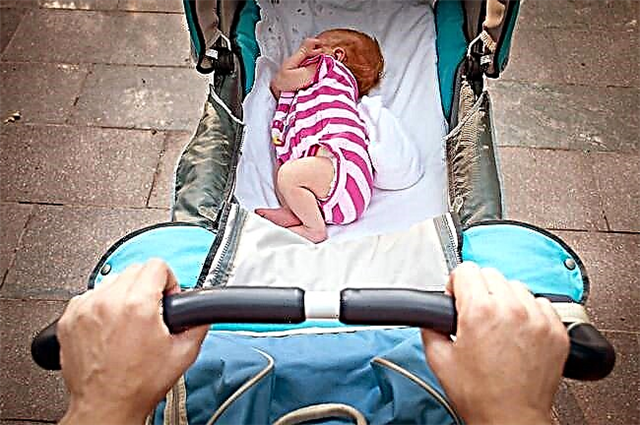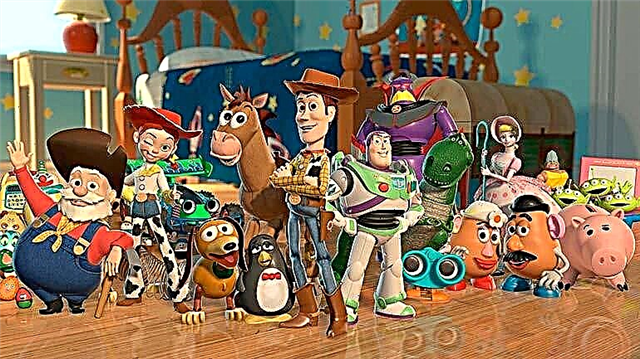It is difficult to say why this is happening - but often we, adults, suddenly catch ourselves on the fact that we are mistaken in the norms of raising children. Do our own attitudes from childhood influence us, or do we lack confidence in our own competence ... However, it's worse when we don't catch. Or when we understand our mistakes only at the stage of causal relationships.

How to distinguish inner principles from cliches in consciousness? Unlike true traditions, pedagogical myths do not allow parents to hear their own intuition, and therefore - to understand the child. By acting through fear rather than love, some stereotypes can destroy the harmony of parent-child relationships. But it was not there! Together we will debunk some myths right now.
"The teacher himself must be what he wants to make the pupil." ―Vladimir Ivanovich Dal
MYTH # 1. “If you give him everything he wants, he will be spoiled and sit on his neck”
Think about what your child wants first? If, say, a bicycle came to mind first, then we still pedaled in the wrong direction. In fact, the main need of every baby is the need for love, and more specifically, to know that he is seen and heard. Giving him what he wants in this sense, it is impossible to overdo it. And no matter how much the rosin may be on the brains of the grandmother's gunta: “Don't teach it to your hands! Do not take the child out of the crib again! ", A happy child is a child who has been sitting in her arms. He is not "tame" at all in the senior preschool age - after all, basic needs are met on time and there is no fear of losing love.
If we talk about "everything he wants", meaning the abundance of toys and entertainment, then one must understand that it is important that we invest in these benefits. For comparison, here are three examples:
- Parents challenge the child out of guilt - they are at work around the clock and have no other way to express their feelings.
- They buy toys, unable to withstand demanding tantrums.
- The family has many relatives and friends, close people bring gifts to the child.
Each situation is individual, but the “possible risks” as such are created not by the “sea of toys”, but by the context of their abundance. If the context is healthy family relationships, the excess of toys and childhood joys is unlikely to negatively affect the baby.
A separate tale is when parents use prohibitions for educational and preventive purposes, always and in everything they are afraid to spoil. Often the child has no choice but to become more cunning - to stop asking permission, for example. This is where the real difficulties in education begin for parents. In another child, this can be the cause of the so-called "learned helplessness" - a problem that causes lack of initiative in various aspects of adult life.
MYTH # 2. "You can't be sorry for any little thing - it will grow up to be a crybaby"
When an adult is upset, we empathize with him - we share heavy feelings, showing understanding and acceptance. And the kid, it turns out, is not a man? Yes, childhood adversity does not look so large-scale, but that's why he is a child. Do not leave him in difficult times! But do not worry more than he himself. The ability to feel, not reproach oneself for negative emotions is something that many adults lack due to improper upbringing. May our children be happier than us. You will notice how, as they grow older and develop their psyche, the little person will need less empathy to stop crying.
A simple example from real maternal experience: Vanya is a receptive child, his grandmother even calls him “mama’s son,” but his mother sees progress - when he was a year old he could cry about every insignificant occasion (under the oohs and aahs of a caring grandmother, who thinks that mom should treat him “like a soldier), but my mother felt sorry for him, expressed sympathy. No worries, no nerves - just with understanding in my soul. And now he is 2 years old. The grandmother worried in vain - not more, but much less he cries, and he calms down much faster. And he is not a crybaby - yes, he is a man of a delicate mental organization, but after all, every child has his own character. Vanya does not cry over trifles. By the way, if more recently, in response to the draft cry, "I hit!" it was necessary to take him on the arms, kiss the bruised place and give him a breast, then six months ago everything became much easier. And the other day he was so carried away by the game of soldiers that, having bruised his knee, he kissed her and continued his important affairs.
MYTH No. 3. “Going away under the crying of children is a mockery. If you need to leave, sneak away unnoticed! ”
So where is the logic? Yes, quietly leaving, taking advantage of the moment of the child's enthusiastic play, we will not hear bitter crying, but isn't this a real mockery of the child's soul? Moreover - this is a spit in the soul! Put yourself in the child's shoes: mom disappears unexpectedly, at any moment. Well, how can you trust her after that? How many times a day, just in case, cry, losing her out of sight? Or maybe you should wake up in the middle of the night and call her? No, well, you never know ... It is absolutely always necessary to be on the alert in this unstable world where people are deceiving each other.
Warning, explanatory, patient parents are far less at risk for the mental state of their children.
Another example: when Alice was a year old, her mother had a need to earn extra money - there was no dad in the family. The grandmother was called to sit with the baby, since the three of them lived. And then quarrels began: the grandmother believed that mom needed to leave unnoticed. Once they did just that, although that day, grandmother's strength did not last long - Alice cried until her mother had to give up everything on her grandmother's call and run home. It seemed that a part-time job did not shine for my mother. But no - after changing the strategy, the women soon noticed that the girl was crying less after her mother left, and her grief did not last so long: after all, her mother promised her to return, because this already happened - she promised and did return.

MYTH No. 4. "Politeness must be instilled from the cradle!"
"Did you say thank you?" - a question for a one-year-old child, to put it mildly, is inappropriate. But how much importance we can attach to this almost from the cradle! “Do not bring up children - they will still be like you” - remember this statement as often as possible and do not train the baby. Better pay attention to your own politeness - and not only with a child. Well, treat your baby as an a priori open, sincere creature. If on the street, walking by the hand with his parents, a two-year-old tomboy meets, say, a teacher and does not say hello, but starts crying and hiding behind his mother - instead of a thousand words, this will say not about his impoliteness, but about how he is treated in kindergarten ... Then it's up to you to decide what to do with the revealed truth. The main thing is to hear and feel the baby. And he will learn to say "thank you" and "please" by your example.
MYTH № 5. "There is no education without punishment"
When parents are not tuned into the inner world of the child, they do not understand the motives of his behavior. Both good and bad. So there are no humane instruments of influence left - only manipulations, threats and punishment. Be a helper, not a supervisor: talk to your inner child and he will explain almost any situation to you. If, of course, you are in harmony with yourself (your inner child should sincerely wish for the good, and not avenge his own childhood - this happens when we act impulsively, and then justify ourselves). No punishment will be needed. Or, at least, they will stop looking like an outpouring of an adult's anger towards a little one.
We read on the topic of prohibitions and punishments:
- To punish a child for accidental misconduct or not?
- 8 loyal ways to punish children. How to properly punish a child for disobedience
- Why you can't spank a child - 6 reasons
- 15 signs you're being too hard on your child
- What can and cannot be prohibited to a child
Alas, in our childhood with you, largely out of ignorance, the concepts of "education" and "punishment" were almost synonymous. "Mom doesn't scream - mom brings up!", "Dad has one remedy for all your whims - vitamin er (belt)!" - remember such statements? For some reason, it was believed that without this we would grow up spoiled, uncontrollable, and generally unacceptable for society. Now we are forced to break the stereotypes that have taken root in our minds under the influence of our own parents. This must be eradicated both at the level of consciousness and at the level of reactions, impulses. A child obeys without any coercion when he feels that the parents are always on his side, tuned in to him and is in full interaction with him. And this is really amazing!
We read on the topic of education:
- 7 discoveries every woman will make as a mom
- Features of the psychology of raising children under one year old
- 7 parenting mistakes that prevent kids from being successful
- Top 10 Parenting Mistakes in Parenting
- How to Raise Your Child in Peace of Love - Top 25 Tips



